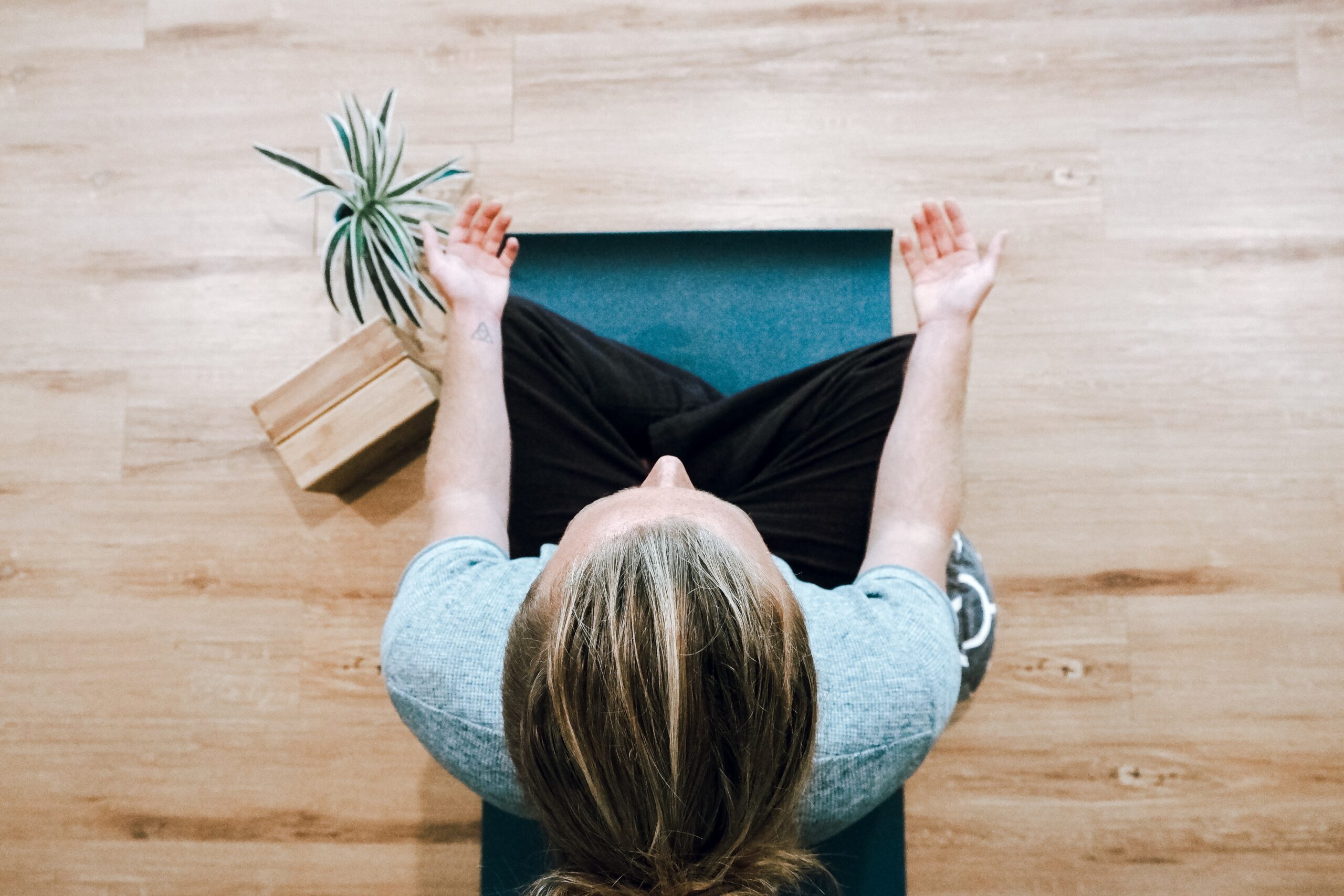What Is Meditation?
Meditation is sometimes viewed as a method for switching off our thoughts or feelings. However, meditation isn’t about trying to not think and feel. Instead, it’s about learning to be aware of thoughts and feelings, but without judging them. The idea is that the more we let our challenging thoughts just be there, the less we worry about them. This means they become less bothersome. Following this, meditation is about increasing our capacity to situate ourselves in the present moment – the here and now – by just observing it, and without forming an opinion of what we find in it. By being in the present moment we come to recognise that our thoughts and feelings may come and go. However, we learn that we can observe them rather than follow them.
Why Learn To Meditate?
By meditating we learn how to return to the present moment. We also increase our capacity to pay attention to the here and now. Through this training, meditation can help us to lower our stress and improve our focus. It can change our relationship to ‘busy’ thoughts in our minds and can make them feel much less bothersome. Meditation allows us to take space for ourselves. This extra space can help us to think more clearly and make better choices in our lives. By learning the skills of meditation, we may find we start to understand ourselves more. We may also find we let go of difficult thoughts more easily, improve our relationship with ourselves, and have better relationships with others. People who meditate also report sleeping better, and feel healthier and more relaxed.
Meditation for Beginners: Guided Practices
Starting something new can feel daunting, and that’s often the case for meditation too. When you first start to think about practising meditation the different approaches and resources available can seem overwhelming. As a beginner to meditation you could consider using guided meditations, which balance instruction and support to stay focused with space and silence to gently observe the present moment. The good news about being a beginner in meditation is that the skill of meditation doesn’t have to be done perfectly. It’s about the process of learning, free from criticism. Even experienced meditators lose their focus. The point isn’t to never let our mind wander, it’s to bring our mind back to our focus when we realise that it has.

Meditation For Beginners: Simple Practices
Whilst it’s OK to start meditating as a beginner using most techniques, some styles of meditation are easier to master for beginners than others. Some tips to start meditating include sitting comfortably, setting a time limit and choosing a type of meditation to either do yourself or be guided through by an instructor. It also helps to set your focus (for instance, on your breath, a mantra or an object), notice when your mind has wandered, and show compassion to your mind if and when it does wander and gently bring it back to your focus. Here are three types of mediation that are accessible for beginners and easy to learn:
1. Mindfulness Meditation
Mindfulness mediation is a very popular kind of meditation that focuses on being in the here and now through paying deep attention. The term mindfulness means doing something with your complete focus. Most mindfulness meditation focuses on the breath. However, you can also do mindfulness meditation whilst eating, walking, swimming or doing almost any other activity. The key is to work on paying attention to what you’re doing and on bringing your mind back to the activity if and when it wanders. A typical mindfulness meditation will involve lightly focusing on your breath and allowing any thoughts to come and go across your mind. If you notice that you’ve got caught up in the thoughts, simply refocus on the breath.
2. Mantra Meditation
In mantra meditation, a mantra or sound is repeated to help the meditator stay focused on the present moment. When the mind wanders the practitioner will gently, and without judgement, go back to the mantra. The mantra can be spoken aloud or said silently. You can choose a mantra yourself (a popular choice is ‘Ohm’ which means universal love) or you could try Transcendental Meditation where an instructor will give you a mantra to practice with. Some people who struggle with mindfulness meditation or with paying attention to their breath may find mantra meditation simpler and better suited to them.
3. Focus Meditation
Focus meditation involves using an object like a flower or a crystal and being fully attentive to it. For example, if you choose a flower you might focus on its colour. Or you could choose its shape, its texture, the way it might smell or how it might feel to touch. You can choose to use any object you like for focus meditation although it should energise your senses. In order to practice, you can imagine the object with your eyes closed or you can sit in front of it with your eyes open and explore it. If and when your mind wanders just gently and kindly refocus your attention on the object. This type of meditation can be very effective, especially for people who prefer to meditation with their eyes open and with a concrete focus in front of them.
How To End A Meditation for Beginners
The ending of a meditation is important and can form an integral part of the meditation itself. To finish your meditation, very gradually open your eyes or lift your gaze if your eyes are already open. Take a few deep breaths. Spend some moments noticing what you sense in your immediate environment, such as anything you can see or hear. Pay attention to your body and notice how it feels. Gently observe your thoughts and feelings. Your could carefully massage your temples or the palms of your hands. Be kind to yourself and congratulate yourself for having taken the time to do this important self-care practice.
How Can Online-Therapy.com Help?
If you’ve tried to learn to meditate previously and would like to explore it further then Online-Therapy.com can help. By signing up with our program you can chose an expert therapist who will work with you to develop a personalised toolkit to support you with your meditation practice and anything that might be getting in the way of you achieving your meditation goals. You can choose to have your therapy sessions by video, phone or text chat (couple counselling will be video only), making Online-Therapy.com a flexible and convenient option.
At Online-Therapy.com we offer a holistic package to enable you to feel at your best. Our approach includes regular sessions with your chosen therapist, unlimited messaging and worksheet support, journaling and yoga. This ongoing integrated support means that you have the daily expert guidance you need to make progress with practising meditation and becoming more mindful as soon as you sign up.




Leave A Comment